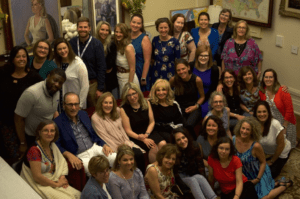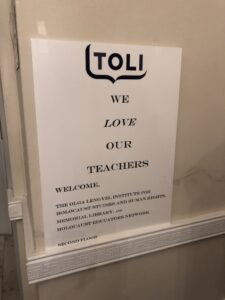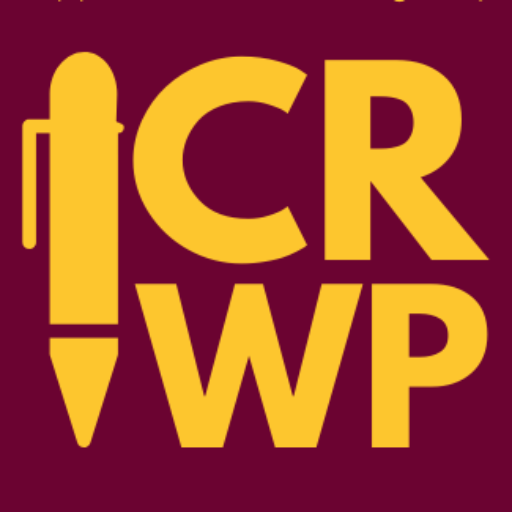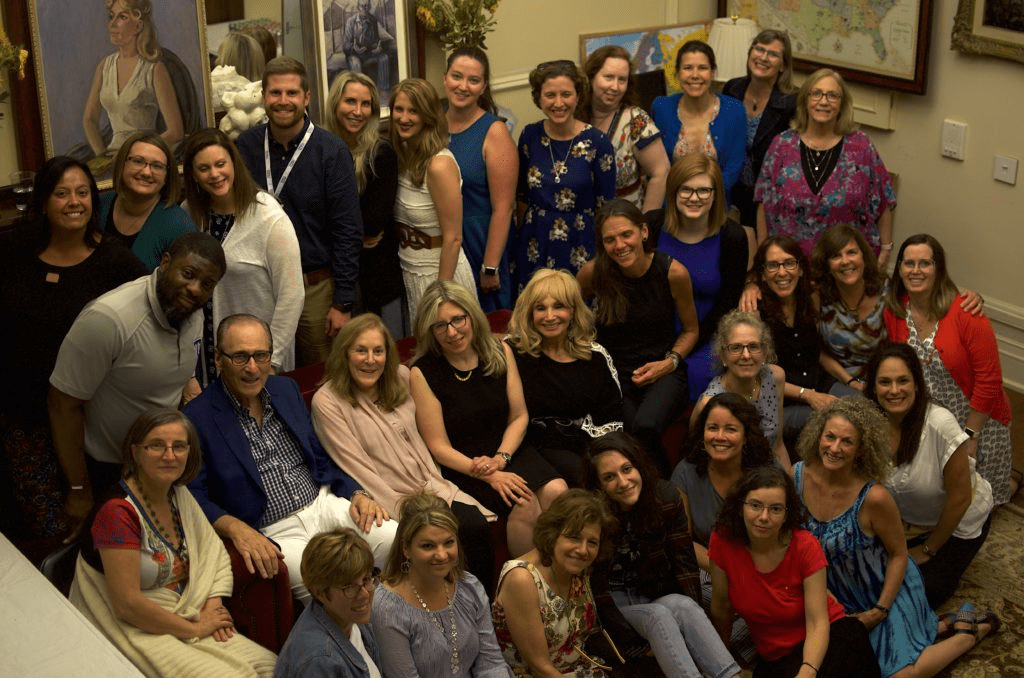 When faced with what seemed like unending snow days in the winter of 2019, I decided to take advantage of an invitation that always spoke to me – applying for the TOLI summer seminar in New York City. Because I love Holocaust literature and exploring big cities, this seminar seemed like a once-in-a-lifetime experience, one for the bucket list. TOLI stands for The Olga Lengyel Institute for Holocaust Studies and Human Rights. The application process required me to speak about my teaching while making connections to the Holocaust and social justice issues I address in my classroom. I doubted myself because I am not a teacher who has a unit on the Holocaust or felt like I placed a lot of emphasis on genocide and social justice as a seventh-grade teacher.
When faced with what seemed like unending snow days in the winter of 2019, I decided to take advantage of an invitation that always spoke to me – applying for the TOLI summer seminar in New York City. Because I love Holocaust literature and exploring big cities, this seminar seemed like a once-in-a-lifetime experience, one for the bucket list. TOLI stands for The Olga Lengyel Institute for Holocaust Studies and Human Rights. The application process required me to speak about my teaching while making connections to the Holocaust and social justice issues I address in my classroom. I doubted myself because I am not a teacher who has a unit on the Holocaust or felt like I placed a lot of emphasis on genocide and social justice as a seventh-grade teacher.
Or so I thought.
What I learned is that much of what I do each day reinforces social justice and empathy, and while I didn’t do a formal study of the Holocaust, I did have something to offer this seminar and its participants. What resulted was indeed a trip of a lifetime, creating friendships with some of the most beautiful people I have ever known.
 On our first night, I met several people in the lobby of our Columbia University dorm along with one of the seminar directors, Alice, who distributed maps to New York City public transportation and umbrellas if we didn’t have one. My dreams of this trip had me leaving the dorm early each morning to stroll through sunny Central Park to take in the sights and sounds of New York City. Unfortunately, what happened was seven straight days of rain – a soaking rain that could not be denied. In hindsight, it was appropriate weather for the heavy, difficult material we were tackling. On the first night, we didn’t let the rain get us down and instead headed from Columbia University by bus and subway train to a neighborhood we have all seen in the movies and on TV, Manhattan’s Upper East Side. Nestled in a block between Park and Madison Avenues with amazing apartments complete with opulently dressed doormen, is a lovely home with three floors that once belonged to Holocaust survivor, Olga Lengyl. I knew we were all in for something amazing when we were greeted at the base of the stairs with a sign that read, “We love our teachers, Welcome.” I got a little choked up reading it. The TOLI people, some educators, and some not, already appreciated me for the work I do. At that moment, my core belief was validated: Kindness matters; it really does. Their kindness and powerful words in a simple sign taped to the wall led me through twelve days of the most profound learning of my lifetime.
On our first night, I met several people in the lobby of our Columbia University dorm along with one of the seminar directors, Alice, who distributed maps to New York City public transportation and umbrellas if we didn’t have one. My dreams of this trip had me leaving the dorm early each morning to stroll through sunny Central Park to take in the sights and sounds of New York City. Unfortunately, what happened was seven straight days of rain – a soaking rain that could not be denied. In hindsight, it was appropriate weather for the heavy, difficult material we were tackling. On the first night, we didn’t let the rain get us down and instead headed from Columbia University by bus and subway train to a neighborhood we have all seen in the movies and on TV, Manhattan’s Upper East Side. Nestled in a block between Park and Madison Avenues with amazing apartments complete with opulently dressed doormen, is a lovely home with three floors that once belonged to Holocaust survivor, Olga Lengyl. I knew we were all in for something amazing when we were greeted at the base of the stairs with a sign that read, “We love our teachers, Welcome.” I got a little choked up reading it. The TOLI people, some educators, and some not, already appreciated me for the work I do. At that moment, my core belief was validated: Kindness matters; it really does. Their kindness and powerful words in a simple sign taped to the wall led me through twelve days of the most profound learning of my lifetime.

The second floor of the building became our home base. We ate two meals a day there, laughed, shared, danced, practiced yoga, talked, cried, wrote, but, most of all, we learned. A good part of our learning took place in the dining room around a giant dining table fondly named Olga’s table. We hoped that Olga was somehow with us as we lived out her legacy of learning how to educate today’s youth about the horrors of the past for it to never happen again. This was the 14th summer of the TOLI summer seminar, and the lineup of activities at Olga’s home and all over New York City kept me so busy that I would fall in bed each night not knowing how I would summon the energy to do it all again the next day.
The thinking routines and learning we were asked to do around Olga’s table felt very comfortable to me. It was all grounded in the National Writing Project’s philosophy of teachers teaching teachers, and that teachers are agents of change when well informed and effective in their practice. The seminar’s goal is for each participant to return home and teach a unit or course on the Holocaust, genocide, or social justice. The hope is by informing and fostering empathy in the students of today, we can prevent the atrocities of the Holocaust and other genocides from happening again. The TOLI mantra is, “Never again begins in the classroom.” While so many of the things I experienced cannot be duplicated in the classroom, many of the learning routines were grounded in sound pedagogy:
-

The author’s memory box. Memory Box – students collect objects that are unique to their identity and creatively display them. We were given three minutes to present our boxes to the group. Later on the first day, they were hung in the library for us to examine during the week.
- Where I am From Poem: this poetic form is quite common and helped us all gain a sense of each other and also tied us to our new writing groups and the Holocaust.
- Teaching Demos – Each teacher was responsible for bringing a Holocaust/social justice lesson to share in a short demonstration.
- Final writing piece – each participant was asked to write something personal in whatever genre that worked, to show something they learned, or how this seminar had impacted the writer.

As we learned and shared, I felt like we stood on the historical and intellectual shoulders of rock stars who guided us along our way. The lineup included two Holocaust survivors who shared their testimony, amazing authors like Alexandra Zapruder and Andrea Pitzer who spent time with us to challenge our thinking and teaching, and our seminar leaders Sondra Pearl, Jennifer Lehman, and Alice Braziller who inspired us with museum outings, dinner in Chinatown, Broadway shows, and Friday Shabbat service complete with a beautiful meal afterward at Olga’s table. Each day was jam-packed with a just-right mix of guest speakers, discussion, free time, and opportunities to do uniquely New York City things.

I went home exhausted, overwhelmed, but wanting more. For the first time in my life, I didn’t miss home; the people I met and the experiences I had will stay with me both personally and professionally forever. I made new friends, learned more than I ever thought possible in less than two weeks, and I am inspired to teach my students Olga’s lesson. My time in her home, around her table, with the most amazing teachers, is an experience I encourage every teacher to try.
The application period is now open for the TOLI summer seminar in New York City. TOLI also hosts seminars at satellites around the world. To learn more, visit TOLI at https://www.toli.us/.
 Jill Runstrom has been a teacher consultant with the Chippewa River Writing Project since 2015. She teaches English at Ann Arbor Skyline High School. During her teaching career, Jill has taught English to grades 7-12 and has been a teacher librarian. While not at school, Jill enjoys her two children, her fantastic husband, and her dogs and cat. Saturday mornings are her favorite time of the week when she wakes up to enjoy a book and a cup of coffee before the rest of the house wakes up.
Jill Runstrom has been a teacher consultant with the Chippewa River Writing Project since 2015. She teaches English at Ann Arbor Skyline High School. During her teaching career, Jill has taught English to grades 7-12 and has been a teacher librarian. While not at school, Jill enjoys her two children, her fantastic husband, and her dogs and cat. Saturday mornings are her favorite time of the week when she wakes up to enjoy a book and a cup of coffee before the rest of the house wakes up.

This work is licensed under a Creative Commons Attribution-NonCommercial-ShareAlike 4.0 International License.
Warning: Undefined array key “img” in /home/chippewa/public_html/wp-content/plugins/molongui-authorship/views/author-box/parts/html-avatar.php on line 4
Warning: Undefined array key “show_social_web” in /home/chippewa/public_html/wp-content/plugins/molongui-authorship/views/author-box/parts/html-socialmedia.php on line 6
Warning: Undefined array key “show_social_mail” in /home/chippewa/public_html/wp-content/plugins/molongui-authorship/views/author-box/parts/html-socialmedia.php on line 7
Warning: Undefined array key “show_social_phone” in /home/chippewa/public_html/wp-content/plugins/molongui-authorship/views/author-box/parts/html-socialmedia.php on line 8
Warning: Undefined array key “type” in /home/chippewa/public_html/wp-content/plugins/molongui-authorship/views/author-box/parts/html-name.php on line 17
Warning: Undefined array key “type” in /home/chippewa/public_html/wp-content/plugins/molongui-authorship/views/author-box/parts/html-name.php on line 19
Warning: Undefined array key “type” in /home/chippewa/public_html/wp-content/plugins/molongui-authorship/views/author-box/parts/html-name.php on line 21
Warning: Undefined array key “archive” in /home/chippewa/public_html/wp-content/plugins/molongui-authorship/views/author-box/parts/html-name.php on line 37
Warning: Undefined array key “name” in /home/chippewa/public_html/wp-content/plugins/molongui-authorship/views/author-box/parts/html-name.php on line 41
Warning: Undefined array key “bio” in /home/chippewa/public_html/wp-content/plugins/molongui-authorship/views/author-box/parts/html-bio.php on line 8


Leave a Reply
You must be logged in to post a comment.